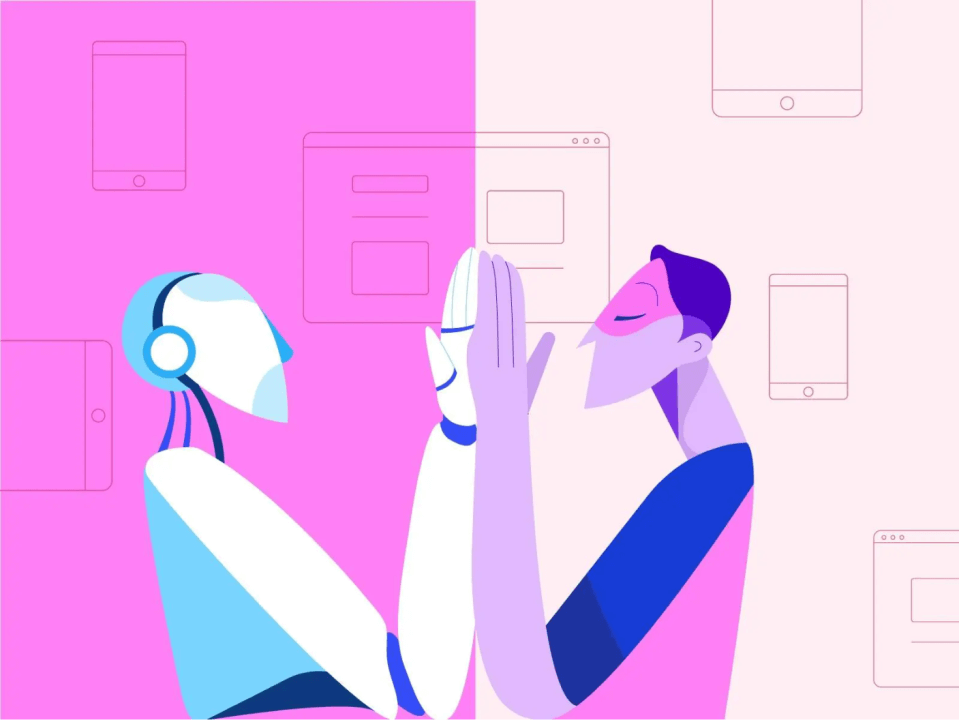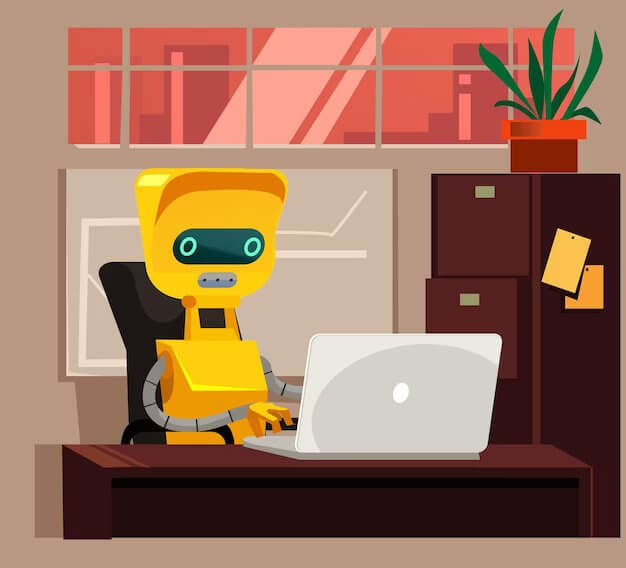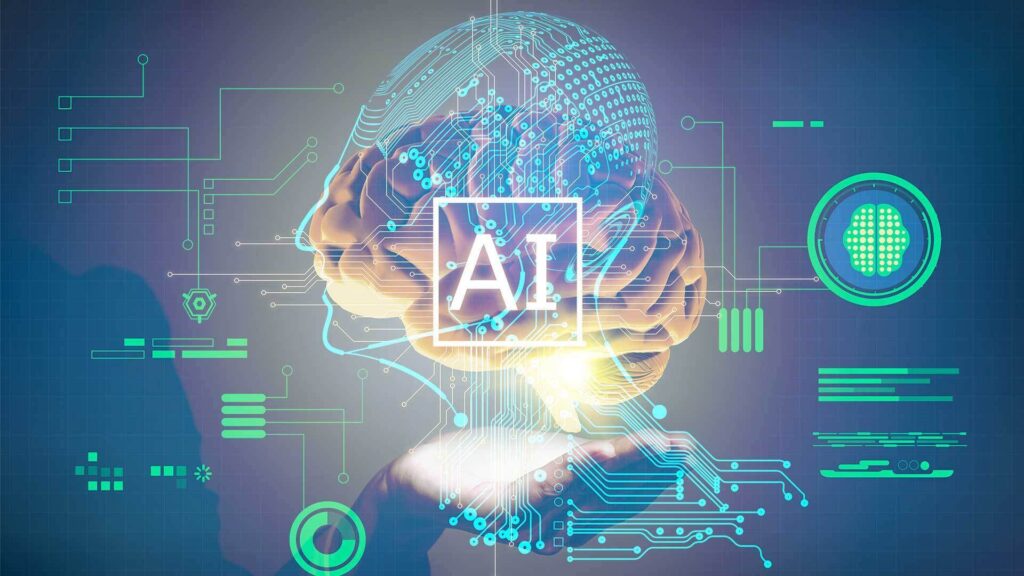
Artificial Intelligence (AI) has permeated nearly every facet of our lives, and the creative industries are no exception. From music composition to film production, AI has proven to be a disruptive force, sparking both curiosity and concern. But what does this mean for job opportunities in the world of AI-driven art and entertainment? In this article, we’ll embark on a journey through the creative landscape reshaped by AI, dissecting the emerging roles, challenges, and the undeniable potential for those seeking a career in this fascinating fusion of technology and art.
The AI Renaissance: A Creative Revolution?
Is AI truly the brushstroke that will paint the next Mona Lisa, or compose a symphony rivaling Beethoven’s Ninth? Let’s delve into the possibilities.
AI-Generated Art and Music
The convergence of AI and art is akin to an enchanted canvas. With algorithms like GANs (Generative Adversarial Networks), AI can craft paintings and sculptures that blur the line between human and machine creativity. Similarly, AI-driven music composition tools like OpenAI’s MuseNet can harmoniously compose original pieces in various styles.
Question: Can AI ever replace human artists and musicians entirely?
AI can generate art and music, but the essence of creativity, the soul that artists pour into their work, remains distinctly human. AI serves as a tool, augmenting artistic expression rather than replacing it. Jobs in curating, critiquing, and collaborating with AI-generated works are ripe with potential.
AI in Film and Entertainment
In the world of cinema and entertainment, AI’s impact is nothing short of transformative. From script analysis to CGI enhancements, AI streamlines production processes, reducing costs and expanding creative horizons.
Question: How does AI influence storytelling in movies?
AI analyzes vast datasets of successful films to identify storytelling patterns, aiding screenwriters in crafting compelling narratives. Moreover, AI-driven visual effects (VFX) can bring fantastical creatures and worlds to life, revolutionizing the film industry.
Career Opportunities in AI-Driven Art and Entertainment

The integration of AI into the creative industries opens up exciting career avenues. Let’s explore the jobs that are emerging as AI becomes an artistic collaborator:
- AI Art Curator: In the realm of AI-generated art, curators take on a pivotal role. They sift through countless AI-generated artworks to curate exhibitions that resonate with audiences. This requires a keen understanding of both AI technology and art history.
- AI Music Collaborator: Music producers and composers can now collaborate with AI systems like AIVA or Amper Music. These AI tools assist in generating music tailored to specific moods or themes, providing endless possibilities for musicians to explore.
- AI Film Script Analyst: AI is transforming scriptwriting. Script analysts now use AI-driven tools to assess scripts, predict market success, and provide feedback to writers, ensuring that stories are not only creative but also commercially viable.
- AI Animation Supervisor: In animation, AI is employed to streamline the animation process. Animation supervisors with AI expertise oversee the integration of AI-driven animation techniques, ensuring seamless storytelling.
- AI-Enhanced Set Designer: Set designers now incorporate AI to create visually stunning and cost-effective sets. AI helps in simulating different set designs and their impact on camera angles and lighting, optimizing the overall production process.
- AI Game Developer: In the gaming industry, AI is a game-changer. AI game developers create immersive gaming experiences, designing non-player characters (NPCs) with advanced AI, making gameplay dynamic and unpredictable.
Challenges on the AI-Creative Horizon
While AI unlocks new creative potentials, it also presents its own set of challenges:
- Ethical Concerns: AI-generated content raises questions about ownership, plagiarism, and the ethics of using AI to replicate or manipulate artistic works. The line between inspiration and imitation becomes increasingly blurred.
- Fear of Job Displacement: The fear of AI replacing human creativity persists. Artists and creators worry about job displacement as AI takes on roles once reserved for humans. How do we strike a balance between human and AI collaboration?
- Bias and Diversity: AI algorithms can inadvertently perpetuate biases present in training data. In the creative industries, this could mean reinforcing stereotypes or excluding underrepresented voices. Striving for diversity and ethical AI becomes paramount.
Preparing for a Career in AI-Driven Art and Entertainment
Are you intrigued by the prospect of a career in this evolving landscape? Here’s how you can prepare:
- Embrace Technology: To succeed in AI-driven creative roles, you must become tech-savvy. Familiarize yourself with AI tools, software, and programming languages relevant to the creative industry.
- Develop a Dual Skillset: Blend your artistic skills with AI expertise. For example, if you’re a painter, learn how to use AI tools to enhance your art, making yourself a valuable hybrid creator.
- Stay Ethical and Inclusive: As a creative professional, prioritize ethics and inclusivity. Use AI responsibly and champion diversity in your work to counteract biases.
- Networking and Collaboration: Connect with others in the field. Collaborations between artists, musicians, filmmakers, and AI developers can lead to groundbreaking projects and job opportunities.
AI’s Creative Potential: Final Thoughts

AI’s role in the creative industries is an evolution, not a revolution. While AI can augment and enhance creativity, it cannot replace the human touch. As AI continues to evolve, so too will the job opportunities in this dynamic field.
So, are you ready to embrace the AI-driven artistic renaissance? Whether you aspire to curate AI-generated art, compose symphonies with the help of AI, or revolutionize storytelling in film, the fusion of AI and creativity holds endless possibilities. It’s a canvas waiting for your unique brushstroke of talent and innovation.
In this ever-evolving landscape, staying curious and adaptable is essential. As AI algorithms become more sophisticated, they will continue to inspire creativity, spark innovation, and redefine what’s possible in the realms of art and entertainment. So, whether you’re an artist, a technologist, or simply an enthusiast, now is the time to dive into the exciting world where AI and creativity converge, shaping the future of artistic expression in ways we can only begin to imagine. The canvas is yours; what will you create with AI by your side?
Frequently Asked Questions
- What are the creative industries, and how is AI impacting them?
The creative industries encompass fields such as art, music, film, and entertainment. AI is making its mark by assisting in the creation, analysis, and enhancement of creative content in these domains. It’s changing how artists work, how content is produced, and how audiences experience art and entertainment.
- Can AI completely replace human creativity in art and entertainment?
No, AI cannot replace human creativity. While it can generate content and assist in creative processes, it lacks the genuine emotional and imaginative aspects that make art and entertainment deeply human. AI should be seen as a tool to augment, not replace, human creativity.
- What job opportunities are emerging in AI-driven art and entertainment?
Several exciting job roles are emerging, including AI Art Curators, AI Music Collaborators, AI Film Script Analysts, AI Animation Supervisors, AI-Enhanced Set Designers, and AI Game Developers. These roles require a combination of creative skills and AI expertise.
- How can I prepare for a career in AI-driven art and entertainment?
To prepare for such a career, you should embrace technology, develop a dual skillset combining creativity and AI knowledge, prioritize ethics and inclusivity, and network with professionals in the field. It’s also beneficial to stay updated with the latest AI tools and trends.
- What ethical concerns surround AI in creative industries?
Ethical concerns include issues related to copyright and ownership of AI-generated content, potential plagiarism, and the responsible use of AI to avoid biases and stereotypes in creative works. It’s crucial to navigate these challenges conscientiously.
- Are there any AI tools for artists and creatives to use?
Yes, there are numerous AI tools available to artists and creatives. Some popular ones include DeepDream for image manipulation, AIVA and Amper Music for music composition, and AI-driven animation software like Plotagon.
- How can AI enhance storytelling in movies and other forms of entertainment?
AI can analyze vast datasets of successful films to identify storytelling patterns, assist in script analysis, predict market success, and provide feedback to writers. Additionally, AI-driven visual effects (VFX) can create stunning and realistic visuals, enhancing the storytelling experience.
- Is there a balance between human and AI collaboration in the creative industries?
Yes, finding a balance between human and AI collaboration is essential. While AI can be a powerful tool, human creativity, intuition, and emotional depth are irreplaceable. The best results often come from a synergistic partnership between humans and AI.
- What’s the future of AI in creative industries?
The future of AI in creative industries is promising. AI will continue to evolve, offering more sophisticated tools for artists and creators. As AI becomes more integrated into creative processes, it’s likely to lead to even more innovative and unique forms of art and entertainment.
- How can I stay updated on AI developments in the creative industries?
To stay updated, follow industry-specific news outlets, join online communities related to AI and creativity, attend conferences and workshops, and engage with professionals in the field. Continuously learning and exploring the possibilities of AI in your chosen creative domain is key to staying informed.